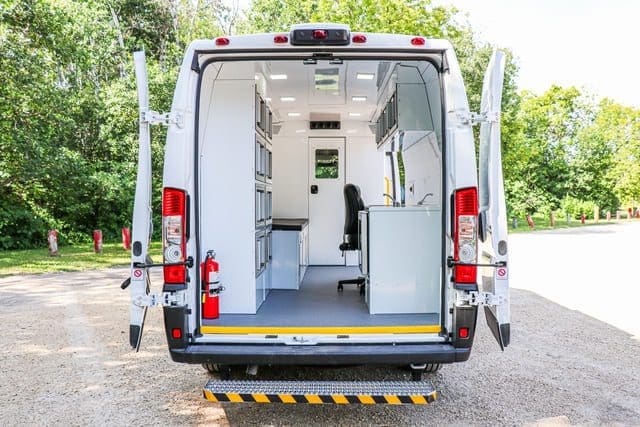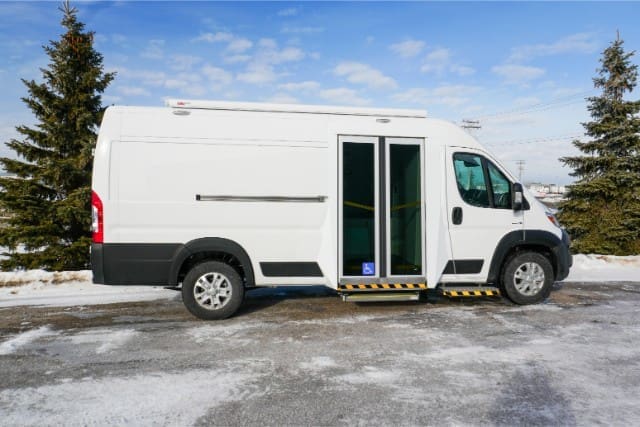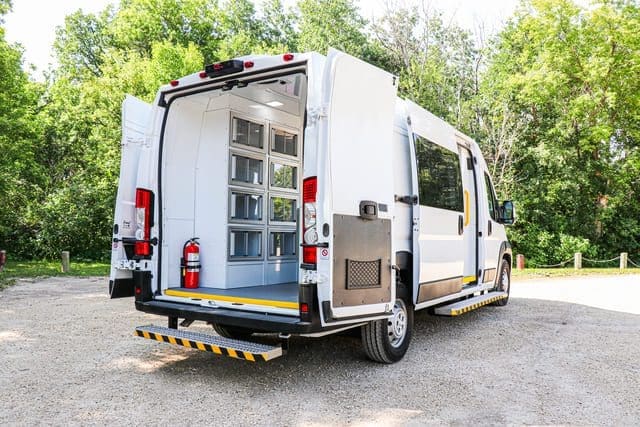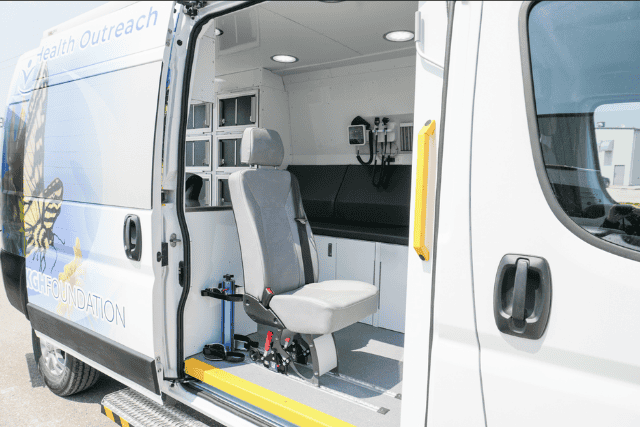Did you know that over 30% of rural hospitals in the U.S. are at risk of closing down? That’s over 600 hospitals! The reason for their closure? It’s primarily because of financial instability. This statistic can make residents in rural areas of the U.S. anxious. Rural hospital closures mean longer travel times for critical care, which can be a matter of life and death for some.
Suppose you’re running a healthcare organization in the U.S. The question is, how can your organization continue to deliver essential healthcare services in these underserved areas that are experiencing hospital closures?
I’m Russ Evans, an account executive here at AVAN Mobility. I’ve got a background in emergency response and have seen firsthand how important it is for people to get the care they need before things get serious. I’m all about helping folks stay out of emergency rooms unless they absolutely have to be there. When organizations like yours bring healthcare right to people’s doorsteps, problems can be tackled early.
In this article, you’ll learn:
- What mobile clinics are
- How mobile clinics can help solve the problem of rural hospital closures in the U.S.
- The future of mobile clinics in rural healthcare
We’ll also look at a real-life example of one of our past clients using a mobile clinic to make a difference in Missouri. Let’s explore how these vehicles can help fill the healthcare gap in rural areas and support your organization’s mission.
What are mobile clinics?
Mobile clinics are like a doctor’s office on wheels. Picture a fully equipped medical office that can hit the road and travel wherever it’s needed most. Check out the list below for some of the features in the Mobile Clinic Van that we manufacture at AVAN Mobility:
- Floor-to-ceiling, aluminum cabinetry
- Options for sink and fridge
- Power supply
- Clean, comfortable environment
- Office desk space with secured rolling office chair
- Overhead storage for equipment, records, and supplies
- Firm vinyl mattress exam bed with under-bed storage
- Wipe-clean surfaces for easy disinfecting between patients
- Industrial, low-maintenance flooring
- Bright LED interior lighting
- Optional fridge for medicine/vaccine storage
- Optional integrated sink with under-sink water supply
- Conventional outlets
- 12V plugs
- USB ports
- Rear heat & air conditioning
During my time at AVAN Mobility, I’ve seen how these mobile clinics can really make a difference. They can travel around the U.S. and reach places where healthcare is scarce, including those areas where 600 rural hospitals have shut down. Instead of patients making long trips to see a doctor, the doctor comes to them. This saves time and can be a real lifesaver in emergencies.
Mobile clinics offer a flexible and innovative solution for providing consistent and comprehensive care, whether it’s for:
- Routine check-ups
- Vaccinations
- Managing chronic conditions
How mobile clinics can help solve the problem of rural hospital closures in the U.S.
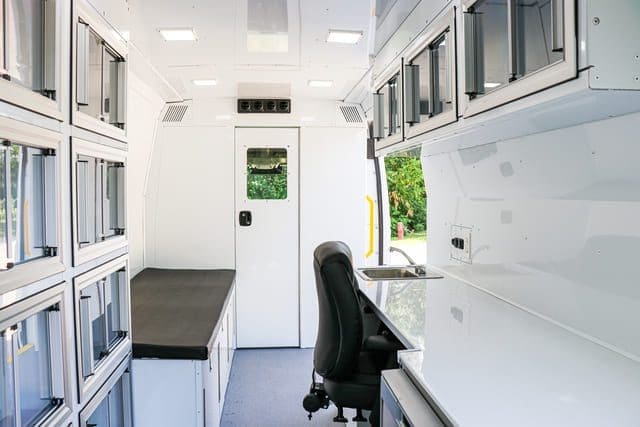
Mobile clinics are a powerful tool in addressing the issue of rural hospital closures. With over 1,300 mobile clinics already scattered across the U.S., these mobile medical units have proven their worth. They’ve directly resulted in nearly 10,000 unnecessary ER visits being avoided. That’s a huge impact!
The only states that aren’t at risk of experiencing rural hospital closures are:
- Utah
- Rhode Island
- New Jersey
- Maryland
- Delaware
Let’s take a look at two hypothetical examples of organizations using Mobile Clinic Vans to address rural hospital closures.
1. Small town in Appalachia
In a small town in Appalachia, the local hospital closed. This meant a three-hour drive to the nearest hospital, which was tough for many, especially the elderly. That’s when a health organization brought in a Mobile Clinic Van to help.
The van came twice a week. It had everything needed for check-ups, shots, and tests for things like diabetes and high blood pressure. Mrs. Anne, an elderly resident, could now get her blood pressure checked and her meds adjusted without the long drive. The staff in the van got to know the community well, building trust and providing steady care.
2. Farming community in the Midwest
In a farming community in the Midwest, the nearest hospital closed last year. During the busy farming season, taking time off for a doctor’s visit was hard. A nonprofit healthcare organization heard about this hospital closure and brought in a Mobile Clinic Van to the community.
This van came to the community center on a weekly basis. It offered primary care and even mental health support. For farmers like Mr. Thompson, this was a big help. He could get his check-ups and manage his pain without leaving his farm for a whole day.
The mobile clinics in these examples were about more than just healthcare; they also brought back a real sense of community and support.
What is the future of mobile clinics in rural healthcare?
Mobile clinics are a direct solution to rural hospital closures across the U.S. They are truly making a massive difference by providing healthcare directly to the communities affected by these closures. But what’s next for these vital healthcare services?
I believe the future of mobile clinics in rural healthcare looks bright. As more rural hospitals shut down, the need for mobile clinics will keep growing. Mobile medical clinics are flexible and can go wherever they’re needed in the U.S. Your organization can use them to deliver important medical services right to the communities of people who might otherwise go without care due to hospitals shutting down.
I’m also excited about the new technologies on the horizon. With telehealth in mobile clinics, patients can have virtual consultations with specialists, even if those specialists are hundreds of miles away. This means mobile clinics can provide even more comprehensive care. Plus, they can be equipped with advanced medical equipment to handle a wider range of health issues on the spot.
I’m especially excited to continue seeing the impact that mobile clinics have on avoidable emergency room visits. Looking ahead, I expect to see even more innovative solutions within these innovative vehicles, making them an essential part of rural healthcare. For organizations like yours, investing in mobile medical clinics means you’re meeting immediate healthcare needs and building a sustainable, healthier future for rural communities.
On that note, I’ll leave you with a video of one of our past clients who is using the Mobile Clinic Van to provide healthcare to patients in Joplin, Missouri.
Feel free to connect with me on LinkedIn. Alternatively, if you have any questions about mobile medical clinics or want to set up a call, click the button below.
